2014 House Officer Awards
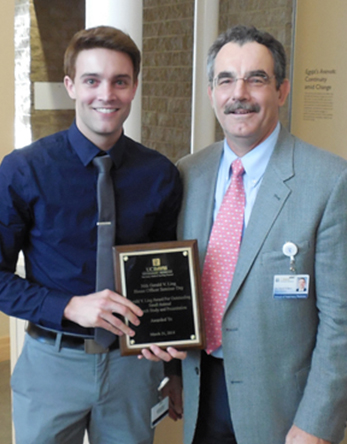
Dr. Andrew Burton
Gerald V. Ling Award for Outstanding Small Animal Research Study and Presentation
"Enumeration and Sizing of Erythrocyte Microparticles in Canine Packed Red Blood Cell Units"
The objective was to compare the ability of nanoparticle tracking analysis (NTA) and flow cytometry to enumerate and size erythrocyte microparticles (MPs) in canine packed red blood cell (pRBC) units, and to investigate the effect of storage time of pRBCs on MP formation.
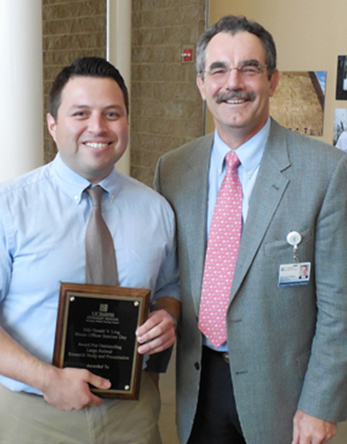
Dr. Kristopher Flores
Outstanding Large Animal Research Study and Presentation
"Prevalence and Risk Factors Associated with Fecal Shedding of Select Pathogens of Zoonotic Concern in California Cow-Calf Herds"
The objective was to update scientific data regarding species and risk factors associated with enteric pathogens shed in the feces of commercial cow-calf herds in California as a means to accurately assess water- and foodborne zoonotic risk.
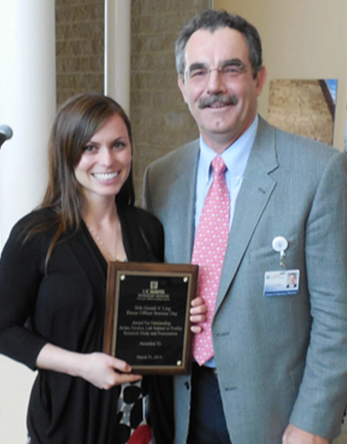
Dr. Krista Keller
Outstanding Avian, Exotics, Lab Animal or Poultry Research Study and Presentation
"Assessment of Platelet-Derived Growth Factor Using a Splinted Full Thickness Dermal Wound Model in Bearded Dragons (Pogona vitticeps)"
The objectives were to translate the splinted full thickness dermal wound model, validated in mice, to the bearded dragon and to determine the effect of topical becaplermin, a platelet-derived growth factor, on the rate of wound closure.
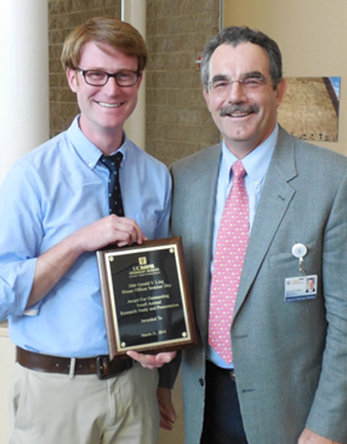
Dr. Brian Leonard
Outstanding Small Animal Research Study and Presentation
"The Mucins of The Cornea: Towards Engineering the Ocular Surface to Treat KCS"
The objective was to determine the mucin expression of corneal epithelium from primates, dogs and rabbits to define the biochemical and interfacial properties of the ocular surface and lend insight to the development of novel therapeutics for treatment of keratoconjunctivitis sicca (KCS).
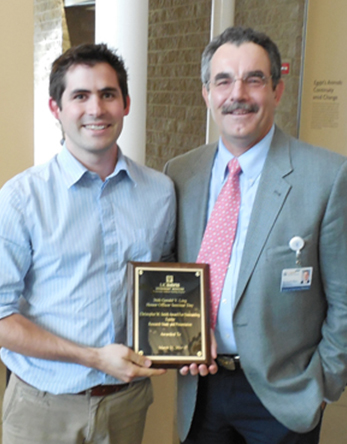
Dr. Jamie Prutton
Chris Smith Award for Outstanding Equine Research Study and Presentation
"Pre-Analytical Stability of Adrenocorticotropic Hormone in Blood From Horses with and Without Pituitary Pars Intermedia Dysfunction"
The objective: Equine pituitary pars intermedia dysfunction (PPID) is a disease of aged horses that is most frequently diagnosed using endogenous adrenocorticotrophic hormone (ACTH) in blood alongside clinical signs. The stability of equine ACTH in collected blood samples has not been fully elucidated. The goal of this study was to address this and to demonstrate which, if any, of the following storage conditions would affect ACTH recovery: time, temperature or storage as whole blood vs. plasma.
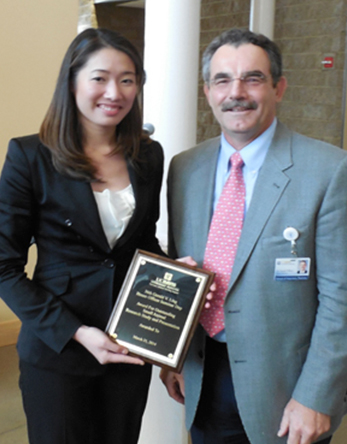
Dr. Bing Yun Zhu
Outstanding Small Animal Research Study and Presentation
"The Role of Brush Cytology in Evaluation of Chronic Cough in Dogs"
The objective was to determine the role of central airway brush cytology in evaluation of dogs with chronic cough.
